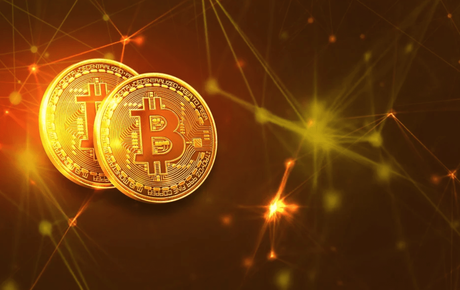Bitcoin is often praised for its ability to prevent inflation, but can it really live up to this claim? In this post, we'll take a look at how Bitcoin achieves this feat and explore whether or not it is truly effective. We'll also discuss some of the criticisms that have been levelled against Bitcoin in this area. By the end of the post, you should have a good understanding of both the pros and cons of Bitcoin's anti-inflationary properties.
What is Inflation?
Inflation can have both positive and negative effects on an economy. On one hand, it can lead to higher employment levels as businesses are encouraged to produce more goods and services to meet the increased demand.
On the other hand, it can result in decreased purchasing power for consumers, as their money is worth less and they can buy fewer goods and services.

Inflation can also have an impact on businesses, both positively and negatively. For example, if the cost of raw materials increases but businesses are able to sell their products for the same price, they will see their profits increase.
However, if businesses are not able to pass on the increased costs to customers, they may see their profits decrease.
Inflation can also have an impact on savers, as the value of their savings will decrease over time if inflation is higher than the interest rate they are earning on their savings.
However, savers may also benefit from inflation if their debt repayments are fixed in nominal terms, as the real value of their debt will decrease over time, borrowers may also benefit from inflation if their debt repayments are fixed in nominal terms, as the real value of their debt will decrease over time.
In general, high inflation rates are considered to be detrimental to an economy, as they can lead to higher levels of unemployment and decreased economic growth. For this reason, most central banks attempt to maintain low inflation rates, often targeting a rate of 2% per year or lower.
Bitcoin and Inflation-
Bitcoin is often lauded as a tool to fight inflation. And while it's true that Bitcoin can help guard against some forms of inflation, it's important to understand how Bitcoin itself may be subject to inflationary pressures.
There are two main types of inflation:- Demand-pull inflation happens when there's more money chasing fewer goods. This can happen when the economy is growing too quickly and there isn't enough supply to meet the demand.
- Cost-push inflation occurs when businesses raise prices in response to higher costs, such as when the cost of raw materials goes up.
Bitcoin is often thought to be immune to inflation because there will only ever be 21 million bitcoins in existence. However, this doesn't mean that Bitcoin can't experience inflationary pressures.
For one, even though the supply of Bitcoin is limited, the demand for Bitcoin is not. If more and more people want to buy Bitcoin, the price will go up.
Furthermore, the way new bitcoins are created also contributes to inflationary pressures. Every 10 minutes, a block of newly minted bitcoins is released into the market. This process, known as mining, is how new bitcoins are created.
The number of new bitcoins released each time a block is mined halves every four years. This is known as the Bitcoin halving. As a result, the inflation rate of Bitcoin decreases over time.
However, even with the halving, there will still be new bitcoins being released into the market for years to come. And as more people become aware of and want to buy Bitcoin, the demand for Bitcoin is likely to continue to increase, exerting upward pressure on the price.
So while Bitcoin may not be as inflationary as fiat currencies, it's still subject to some degree of inflationary pressure. Investors should be aware of this when considering whether or not to invest in Bitcoin.
How Bitcoin Can Hedge Against Inflation
Bitcoin has been praised for its potential to serve as a hedge against inflation. While traditional fiat currencies are subject to the whims of central banks, Bitcoin is not subject to any centralized control.
This means that Bitcoin could potentially protect holders from the negative effects of inflation, which can erode the value of traditional fiat currencies.
While there is no guarantee that Bitcoin will continue to appreciate in value, it does have a number of properties that make it a potentially attractive hedge against inflation.

First, the limited supply of Bitcoin means that its value is less likely to be affected by inflationary pressures. Second, Bitcoin is decentralized and not subject to the whims of central banks or other financial institutions.
This means that holders of Bitcoin can be less affected by policy changes or other factors that might lead to inflation.
While Bitcoin may not be a perfect hedge against inflation, it does have the potential to provide some protection against the negative effects of this phenomenon. For investors who are concerned about the possibility of inflation, Bitcoin could be an attractive option.
Quick LinksConclusion- Can Bitcoin Prevent Inflation In 2023?
In conclusion, it is evident that Bitcoin has the potential to help prevent inflation. While there are some drawbacks to the cryptocurrency, such as its price volatility and lack of regulation, it appears to be a more viable option for preventing inflation than traditional methods.
With this in mind, it will be interesting to see how governments and central banks around the world react to Bitcoin and other cryptocurrencies in the years ahead.
Bitcoin is an interesting digital currency that has the potential to prevent inflation. However, it is still in its early stages and has yet to be tested. As more people use Bitcoin, the effects of deflation and inflation will become clearer.
For now, it appears that Bitcoin has the potential to be a strong currency that can help prevent hyperinflation.
Bitcoin has the potential to prevent inflation from occurring in a country's economy. In fact, it may even be able to reverse hyperinflation. However, it is not a perfect solution and there are still some potential issues that need to be addressed.
Despite these concerns, Bitcoin offers a unique solution to an age-old problem and has the potential to revolutionize how economies function.
